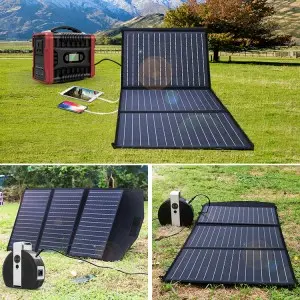As the world grapples with climate change and the need for sustainable energy, solar panels are getting a lot of attention as a viable solution. While the environmental benefits are undeniable, deciding whether to invest in solar panels is a personal and financial decision that requires careful consideration. In this blog, we will discuss the key aspects you should evaluate when deciding whether to purchase solar panels for your home or business.
1. Assess your energy needs:
The first step in determining if solar panels are right for you is to assess your energy consumption. Calculate your average monthly electricity usage and identify peak energy consumption periods. Knowing your energy needs will help you size the solar panel system you need and estimate potential savings.
2. Financial considerations:
Solar panels require a significant upfront investment. However, they can significantly reduce or even eliminate your electric bill over their lifetime. Consider the cost of solar panels, available financing options, potential tax benefits, and payback period. While the initial costs may seem huge, the long-term financial benefits often outweigh the upfront costs.
3. Solar potential:
Assessing your property’s solar potential is critical. Factors such as location, roof orientation, shade from trees or neighboring buildings, and local weather conditions can all affect a solar panel’s efficiency. Conduct a solar feasibility study or consult with a solar panel installation company to assess your property’s solar potential and estimate how much energy a solar panel system can produce.
4. Environmental impact:
Solar panels are known for their positive impact on the environment. By harnessing the power of the sun, you can significantly reduce greenhouse gas emissions and dependence on fossil fuels. If minimizing your carbon footprint is important to you, solar panels could be a meaningful way to contribute to a more sustainable future.
5. Maintenance and Warranty:
Solar panels generally require minimal maintenance, with cleaning a top priority. However, it is important to understand the maintenance requirements and warranty terms offered by the manufacturer and installer. Make sure you fully understand warranty coverage, duration, and potential repair or replacement costs.
6. Regulatory and Licensing Considerations:
Before installing solar panels, familiarize yourself with local regulations and permitting processes. Certain jurisdictions may have specific requirements, such as obtaining a license or meeting certain installation standards. Check with your local government or solar panel installation company for the necessary approvals.
7. Available financing options:
If you’re concerned about the upfront cost of your solar panels, explore the financing options available. Many financial institutions offer solar panel loans, while some solar companies offer attractive leases or power purchase agreements. Evaluate these options carefully, considering the pros and cons of each to determine the option that best suits your financial situation.
in conclusion:
Deciding whether to purchase solar panels involves a variety of factors, including your energy needs, financial considerations, solar potential, environmental impact, maintenance requirements, regulations, and financing options. By carefully evaluating these areas, you can make informed decisions that align with your personal values, financial goals and commitment to a sustainable future. Solar panels are undoubtedly a smart investment for many people, but the final decision should be based on your unique situation and priorities.
Post time: Jul-10-2023
